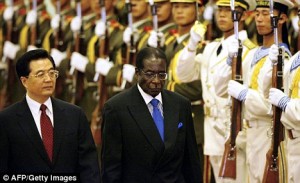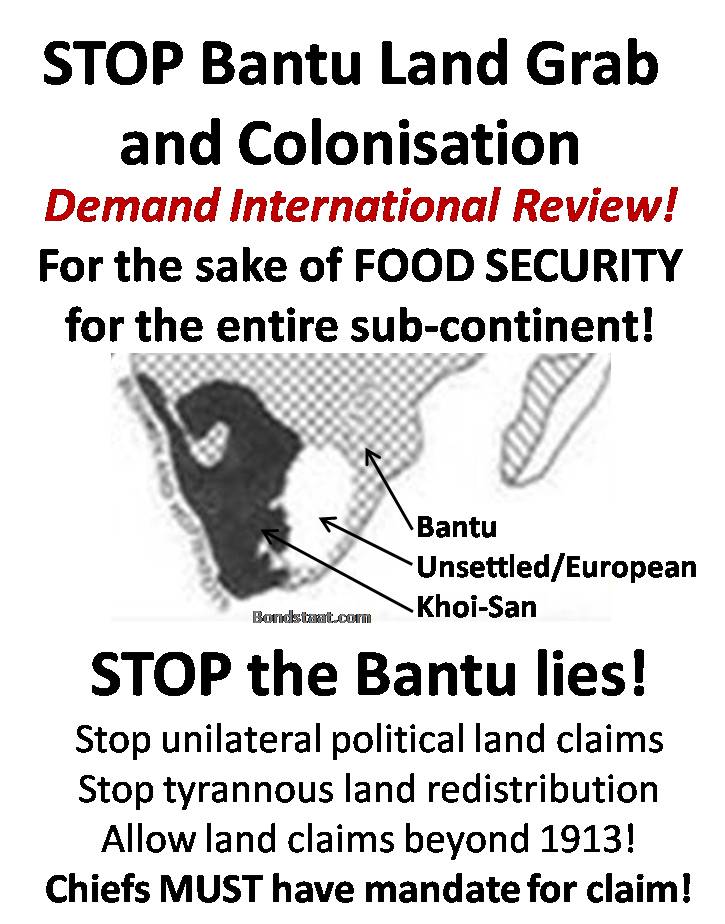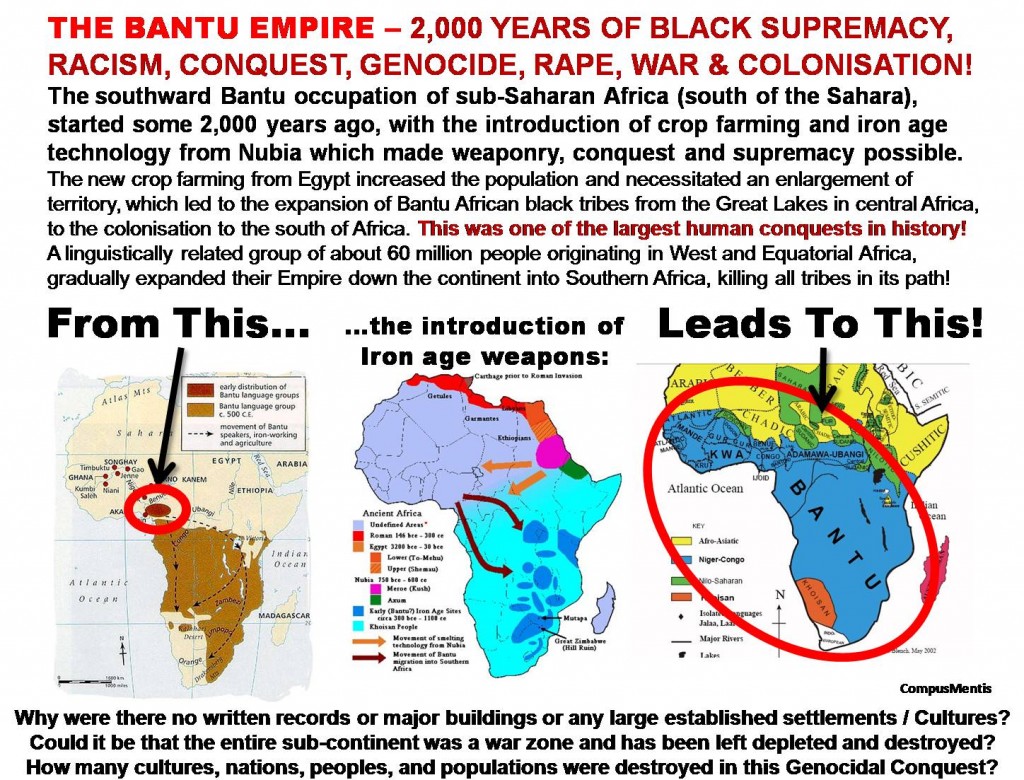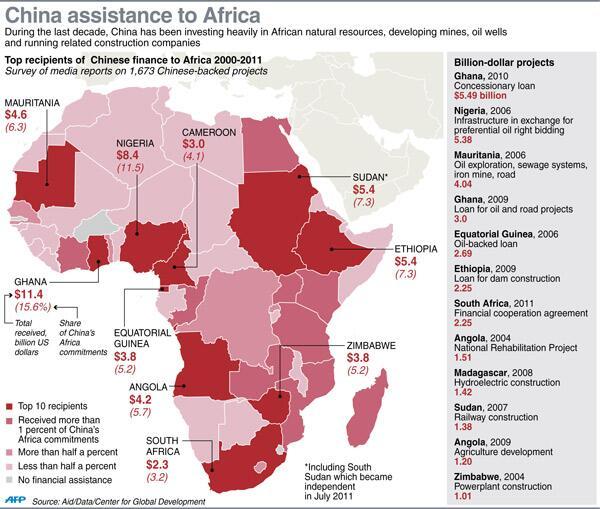COLONISATION; NOT JUST A EUROPEAN THING: BLACKS STOLE LAND AND ENSLAVED BLACKS TOO!
One of the most dangerous and simultaneously unfortunate characteristics of the current malaise is the sense of entitlement fueled my mass misinformation. Indeed, it is from that, that the land issue has become a scapegoat for the ANC, a populist ticket for the EFF, and an excuse for bad governance and poor delivery from the government.
It is well publicised that South Africa suffers under the strain of unequal wealth distribution, and skewed economic playing fields, but it is unknown fact that privilege is not a white only thing, in the same way evil imperialist monopoly capital is not a white only thing.
That the differences and absurdities in wealth distribution continue to be erroneously labelled and classified by colour 21 years after apartheid is the greatest tragedy since Shakespeare’s Macbeth.
That the general population and indeed some intellectuals can be hoodwinked into believing the current status quo is the architecture of racist capital is the stuff of Legend.
Honesty in intellectual discourses is a prerequisite lest confusion will substitute reason and ignorance will be the order of the day. In this notion, the land issue must be debunked before it is addressed.
To begin with, we must understand that, when the blame is syphoned and re-directed towards ‘invisible white monopoly force’, the ANC and indeed its actors that assume the role of state are granted the biggest let off since Jiang Qing, Chairman Mao’s wife was released 10 years into a death sentence commuted to life.
For that very sole reason the ANC will not directly confront the reality about the land issue, more specifically its history. For if it were addressed, and people were informed about the correct context of the Colonisation, Imperialism and Apartheid, the ANC would be left in a very uncomfortable position, where they would have to answer for their wrongs with no excuse, no scapegoat, and no one to shoulder the blame.
Given the mirage of false blame, at one point or another, a party like EFF was always going to spring from the ashes and threaten to become one of the biggest far left movements in the entire country. For with such a culture of ignorant but calculated blame, someone was always going to threaten to go radical and whip up the masses.
It is human nature that people easily get angry when they are repeatedly told that a certain group is responsible for their suffering. It is such anger that inspired the struggle to end colonial domination all across Africa to begin with.
That Julius Malema and the EFF have found within such a volatile status quo a playground to settle political scores and direct their ambitions is not surprising because it is opportunistically human. History dictates so, and South Africa is at the foot of it, repeating it, again.
I suppose the question becomes where to next? Well, as mentioned earlier, for us to be able to settle the land issue in any degree, and with any success, we must be honest about the history of the land issue, and colonisation itself.
At a most elementary level, we must accept that, the notion that 40, 000 white people control 80% of the land in South Africa is false, improbable and impossible.
We must understand that such a perpetuated falsehood serves to benefit the ANC, and true to that end the government till this day refuses to engage in a race based land audit, which would put to rest the issue.
Nonetheless, there are strong indications of sound evidence that challenge the 80%-whites hypothesis. The ‘non-racial’ state land audit, carried out by the office of South Africa’s Chief Surveyor-General and published in 2013 found that 79% of South Africa’s landmass was in private hands, not necessarily white, or black hands.
It found that this land was and is owned by individuals, companies and trusts and includes all urban real estate as well as agricultural and mining land in South Africa. It would be mathematically and practically impossible given such findings for ‘white people’ to own 80% of the land.
Therefore, according to Mmuso Riba, the Chief Surveyor-General, “there is no basis” for the claim that whites own 80% of South Africa.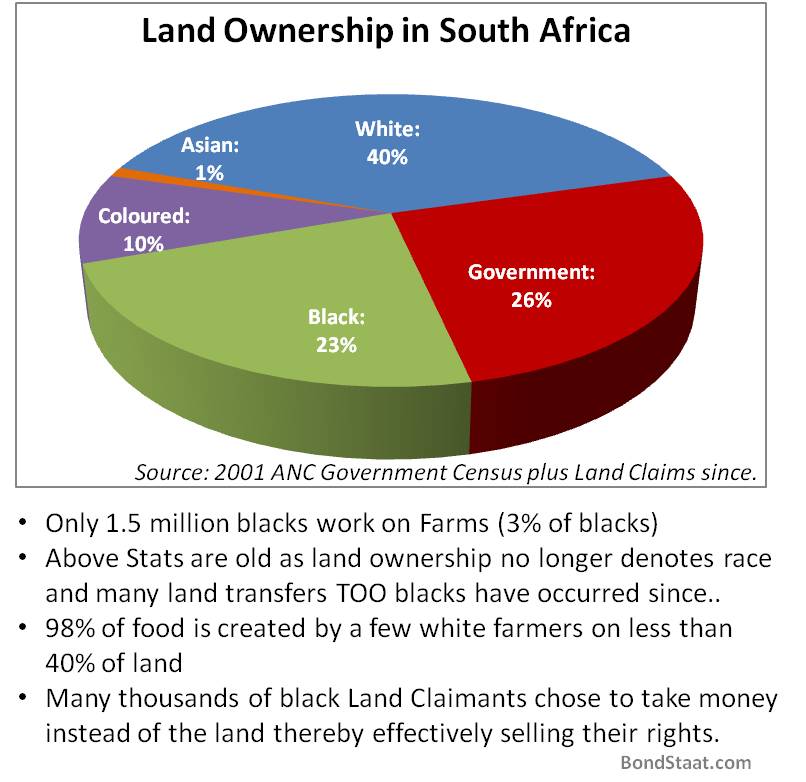
It is understandable that such a truth hurts to confront, seeing is, the land issue is a very sensitive and emotional topic, but if it must be solved satisfactorily, honest presentation of facts and data is necessary.
I will keep reiterating that it is important that we remain brutally honest with each other if we are to stop our nation from descending into incredible and less than spectacular levels of hatred and poverty. To this notion, colonisation on its own is not and ought not to be a ticket to entitlement.
Much as it sounds insensitive, we must not run the risk of allowing ourselves as blacks to be defined by a false perpetual victim mentality. It is true that colonisation, like slavery is a dark travesty committed unto out forefathers, but it is childish to act as if we are super entitled victims.
Yes, colonial times were horrible, and apartheid was bad. But it was not a white only thing, neither was it a unique version of exploitation. White people cannot and must not inherit labels of racism, based on the actions of their forefathers.
It is important that we remember, that as black Africans, colonisation, expansion and domination was our way of life. The Zulu colonized and conquered more land in South Africa and beyond, and in brutal unrepentant fashion for that matter.
As the powerful Zulu war machine expanded the Zulu Empire would maim and kill most of the men and take the land, women and cattle (all seen as property) of surrounding lands.
Many of those who were conquered were taken into or sold into slavery. To anyone who opposed the Zulu Empire, retribution was harsh. Retaliation was almost genocidal in its brutality with infanticide a common practice.
Entire cultures, nations and tribes were to be destroyed or exterminated from the pages of history by the Zulu Impi.
Those were times defined by bloodshed, but should all other ethnicities hold that against them today? The answer is No, and should remain No, even when ethnicity is substituted for race.
The brutality of the Zulu empire only ended several years ago, and so have colonial times. We must learn from the past but that must not slow our progression for the future. If we continue to judge peoples of today by historical figures and events of the past, there will not be a single one of us who does not have an ancestor with blood on their hands.
There is not a single human being alive today that is not the result of colonization, migrations and expansions by their ancestors. None of us has a history that could pass today’s much higher morality standards.
It is quite clear that we need to confront our problems openly and with honest sincerity, no matter how hurtful that may be.
Things need to change, but as long as we keep making scapegoats out of invisible forces and excusing those responsible for effecting that change, we allow our leaders to live in R250 million houses, and fly on R4billion private jets, while blaming the wrong people.
![]() By Maynard Manyowa on News24 Voices
By Maynard Manyowa on News24 Voices
According to David Stannard’s American Holocaust, 50% of African deaths occurred in Africa as a result of wars between native kingdoms, which produced the majority of slaves. This includes not only those who died in battles, but also those who died as a result of forced marches from inland areas to slave ports on the various coasts. The practice of enslaving enemy combatants and their villages was widespread throughout Western and West Central Africa, although wars were rarely started to procure slaves. The slave trade was largely a by-product of tribal and state warfare as a way of removing potential dissidents after conquest, victory or financing future wars.
However, some African groups proved particularly adept and brutal at the practice of enslaving others, such as Oyo, Benin, Igala, Kaabu, Asanteman, Dahomey, the Aro Confederacy and the Imbangala war bands.
The kings of Dahomey sold their war captives into transatlantic slavery, otherwise they would have been killed in a ceremony known as the Annual Customs. As one of West Africa’s principal slave states, Dahomey became extremely unpopular with neighbouring peoples.
King Gezo of Dahomey said in the 1840s:
The slave trade is the ruling principle of my people. It is the source and the glory of their wealth…the mother lulls the child to sleep with notes of triumph over an enemy reduced to slavery…
Like the Bambara Empire to the east, the Khasso kingdoms depended heavily on the slave trade for their economy. A family’s status was indicated by the number of slaves it owned, leading to wars for the sole purpose of taking more captives. This trade led the Khasso into increasing contact with the European settlements of Africa’s west coast, particularly the French.
Benin grew increasingly rich during the 16th and 17th centuries on the slave trade with Europe; slaves from enemy states of the interior were sold, and carried to the Americas in Dutch and Portuguese ships. The Bight of Benin’s shore soon came to be known as the “Slave Coast”. In 1807, the UK Parliament passed the Bill that abolished the trading of slaves. The King of Bonny (now in Nigeria) was horrified at the conclusion of the practice:
We think this trade must go on. That is the verdict of our oracle and the priests. They say that your country, however great, can never stop a trade ordained by God himself.
The Atlantic slave trade peaked in the late 18th century. Obviously, Europeans did not TAKE Slaves in Africa, they BOUGHT Slaves in Africa. Europeans would not last a week in the harshness of African climate, disease and wild animals. These expeditions were typically carried out by African kingdoms, such as the Oyo empire (Yoruba), Kong Empire, Kingdom of Benin, Kingdom of Fouta Djallon, Kingdom of Fouta Tooro, Kingdom of Koya, Kingdom of Khasso, Kingdom of Kaabu, Fante Confederacy, Ashanti Confederacy, Aro Confederacy and the kingdom of Dahomey. Europeans rarely entered the interior of Africa, due to fear of disease and moreover fierce African resistance. The slaves were brought to coastal outposts where they were traded for goods.
MEET YOUR NEW MASTERS! The new colonials have arrived.
Meanwhile not to be outdone or miss out on recently relinquished white colonial resources up for grabs, the Chinese are living up to their reputation…
Without as much as a whisper, the South African government allowed at least 400,000 Chinese to swamp the country during the past six years. Chinese migrants, mainly from the overpopulated Fujian province in China, have been shipped off to South Africa at an alarming rate. Spreading all over the country, even in the remotest parts, between 6,000 and 12,000 “Chinese shops” sprang up – indicating that the phenomenon is well-orchestrated by both China and South Africa.
Prof Colin McCarthy, retired from the University of Stellenbosch, first noted the “Chinese colonization”. Says Prof McCarthy: “All the evidence indicates that the project to set up such an extensive network of Chinese shops, all following the same pattern and targeting the same market, was well researched, well planned, well organized and well financed”.
The young, unemployed couples from Fujian province settled into the network – pushing up cheap Chinese plastic, products and clothing into a lucrative retail chain far bigger than Pick ‘n Pay, Pep Stores or Edgars. To make matters worse: most of the Chinese shops are not registered and do not pay any taxes in South Africa, not even import or export duties – in fact, China puts its clothing exports to South Africa at R11,3 billion in 2010; whilst South Africa’s failing statistics put the Chinese clothing imports at only R6,7 billion! It means that in one single year R4,6 billion worth of Chinese clothing entered South Africa illegally.
South African Revenue Services employee spilled the beans on a small Chinese shop in a rural area where, when raided by SARS, R1,2 million was found under the counter!
Janet Wilhelm of the HSRC observes: “It is amazing how so many people can enter a country seemingly unnoticed!” She quotes the SAPS Aliens Investigation Unit as saying “Many Chinese travel to South Africa via Mbabane , Maputo and Maseru from where they enter South Africa with false identity documents by road”.
Patrick Chong, chairman of the Chinese Association of South Africa, says: “Many would enter on tourist or student visas then simply stay”.
Researchers of Noseweek followed the Chen family where one pioneer settled illegally in South Africa , spreading within four years to 172 members of the family scattered across Lesotho trading Chinese products.
What is even more mind-boggling and sinister is that the South African ANC government officially proclaimed Chinese as “honorary blacks”, making them exempt from affirmative action, quotas and Black Economic Empowerment.
The whole “Chinese” experiment has been carefully planned, criminally enhances, and no doubt .. Vast sums of money are involved, lining the pockets of very influential South African politicians.
It is ironic that while populists like Malema and Shivangu walk about claiming “land and minerals for the South African people”, the ANC government has allowed at least 400,000 additional Indians and Pakistanis, at least 400 000 Chinese and at least 10 million illegals from Zimbabwe, Nigeria, Mozambique, Angola and now also Zambia into the country..
Scary!
And this happened as the increase in rhino and other poaching started! Coincidental? As regards China’s Human Rights record, we won’t even go there…


